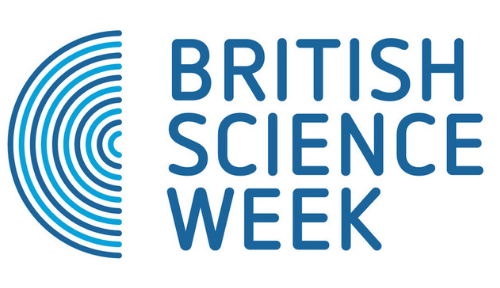British Science Week
Resource type: Event
Price band: Free
Key stage: KS1, KS2, KS3, KS4, KS5
Region(s): All of UK
British Science Week is a ten-day celebration of science, technology, engineering and maths that takes place every year in March. British Science Week 2024 will take place between 8th – 17th March. The theme for 2024 is Time.
At the heart of British Science Week is a programme of events organised by schools, researchers, universities and companies that take place across the whole of the UK. The British Science Week website also hosts a number of other resources that can be used in schools:
- Browse the events and activities taking place during British Science Week, including opportunities to take part in the Big Plastic Count and Nature’s Calendar.
- Download the British Science Week packs for ideas and activities to run in the classroom during British Science Week or all through the year. There are packs for EYFS, Primary and Secondary.
- Get involved with the annual poster competition linked to the year’s theme. The deadline for 2024 entries is Thursday 28th March.
- Encourage every student to see themselves as a potential scientist or engineer by exploring the stories in the ‘Smashing Stereotypes’ campaign.
Cost: Access to all the online resources is free. Events may incur a fee.
About the British Science Association: The British Science Association is a charity whose mission is to promote diversity and inclusion in science, increasing the number of people who are actively engaged in science in order to improve our ability to tackle the challenges of the future.
Further resources:
- Explore the origins of telling time and the evolution of time-telling instruments with a free Live Assembly for primary students hosted from the Royal Observatory in Greenwich on Friday 8th March.
- Tune into the BBC Live Lesson on Monday 11th March to learn about invertebrate life cycles and metamorphosis and help the presenters crack the code to the Live Lessons escape room. Suitable for pupils aged 7-11 and teaching resources will be available to download in the run-up to the broadcast.
- Find a speaker for an event you would like to organise, or find an event that is local to you using the Science Live platform.
- Explore the selection of STEM films and videos for primary and secondary schools from BBC Teach.
- Get involved with the National Literacy Trust’s current STEM Reading Challenge. We Wonder: Journey Into Space invites pupils aged 7-14 to research and plan a journey into Space in a rocket of their own design. The challenge runs until 22nd March and there are supporting resources available.
- Topical Talk provides free resources to encourage discussions about the key issues facing our world today, including many science-based topics such as climate change, Artificial Intelligence, animal sentience, space tourism and more. Suitable for pupils aged 10+
- Science magazines such as Whizz Pop Bang!, The Week Junior Science and Nature, Britannica Magazine and National Geographic Kids are great additions to the school library.
- Good sources of recommendations for books that cover STEM subjects are Books for Topics and LoveReading4Kids.
- The Gadgeteers Book Collection from the 2022 Summer Reading Challenge is a useful source of accessible reads for primary pupils.
- Ensure that the achievements of women scientists and engineers are represented in your library with this Women in STEAM booklist from Best Books for Schools and this list of 30 books celebrating Women In Science from LoveReading4Kids.
- The Royal Society Young People’s Book Prize celebrates high quality, accessible STEM books for under-14 year-olds. The shortlist is always a useful source of recommended titles for the school or class library and the winner is chosen by panels of young judges around the country. Find out more about one teacher’s experience of running a young judges panel and the benefits of getting involved in our blog.
- Check out the free learning resources available to accompany computer science adventure story Agent Asha: Mission Shark Bytes. There is also a blog with a list of story-led books that introduce STEM and coding for primary-aged children.
- Find out more about teaching primary Science Through Story with award-winning primary science teacher and author Jules Pottle.
- The Primary Science Teaching Trust has a wealth of free teaching resources for primary schools. Check out the Pictures for Talk booklet that provides some intriguing pictures and accompanying questions to encourage children to ‘talk like a scientist’.
- The National Literacy Trust’s Literacy for Learning CPD programme for secondary schools includes a Developing Literacy in Science course. The next course will take place in the summer term 2024.
Visit the resource
Contact Details
Rate this resource
Click on the star to rate it!

